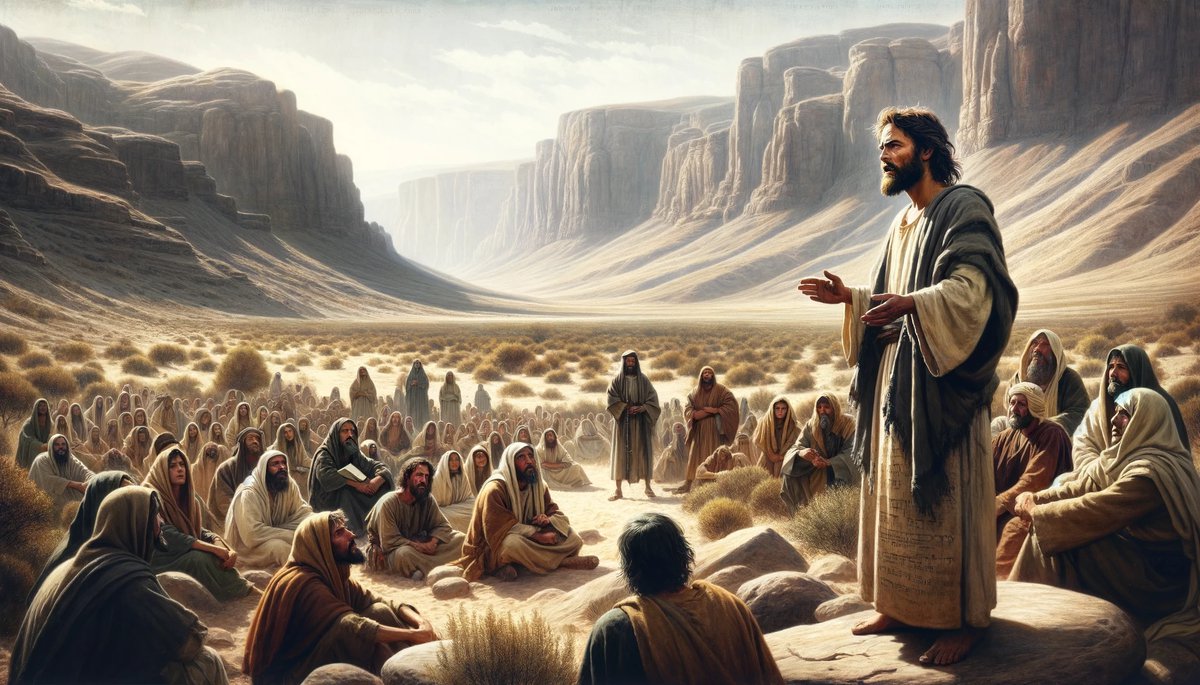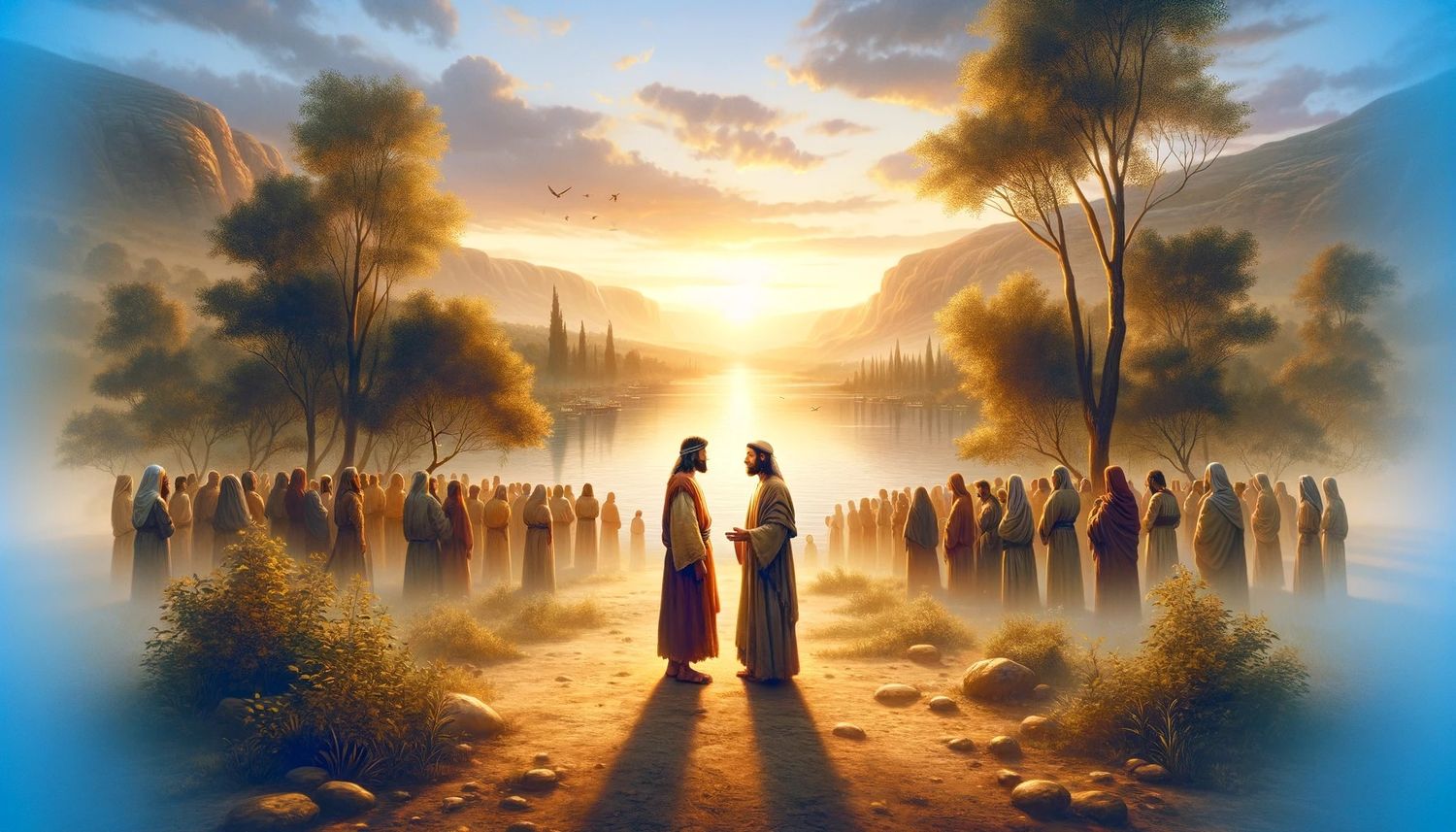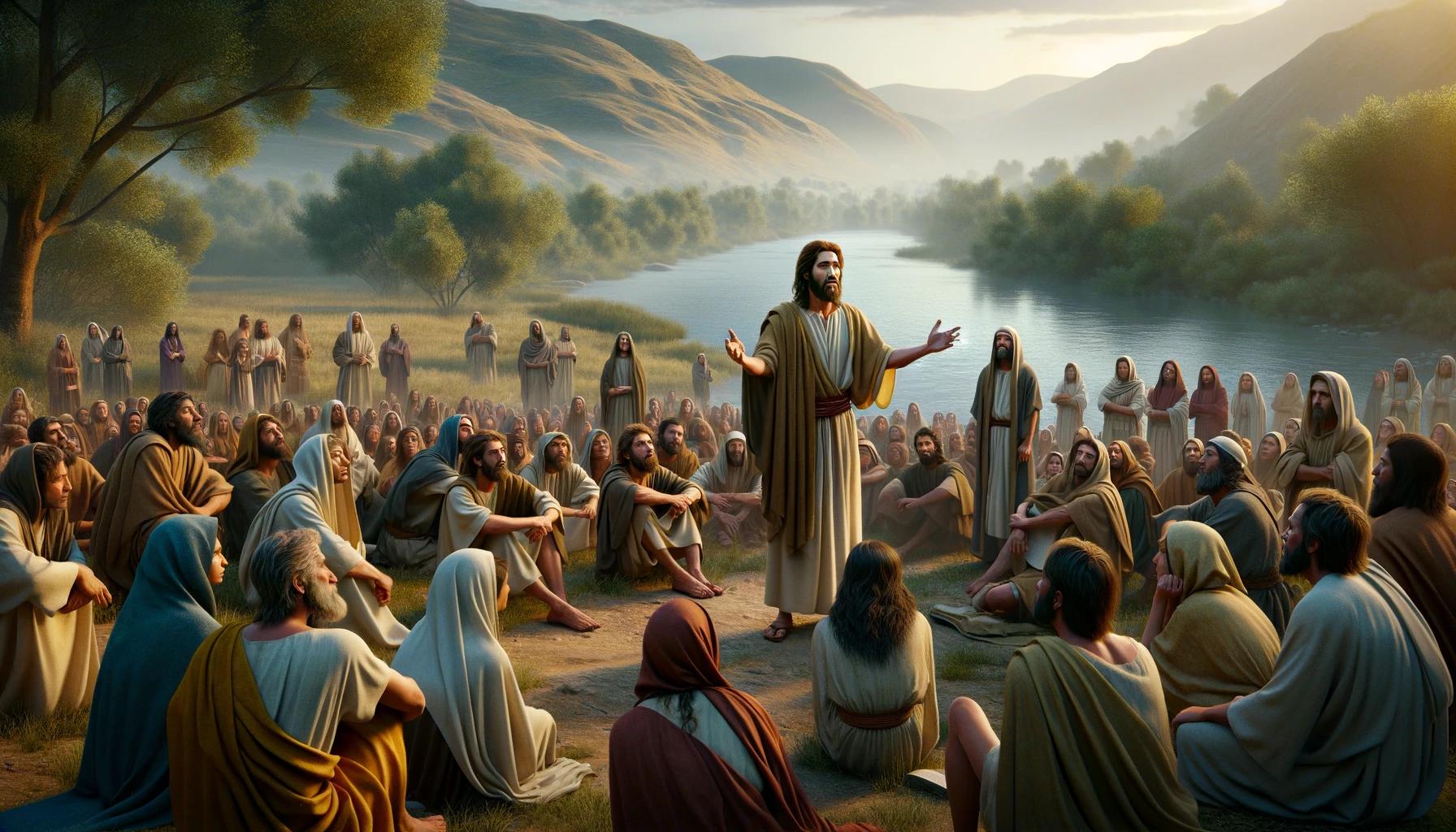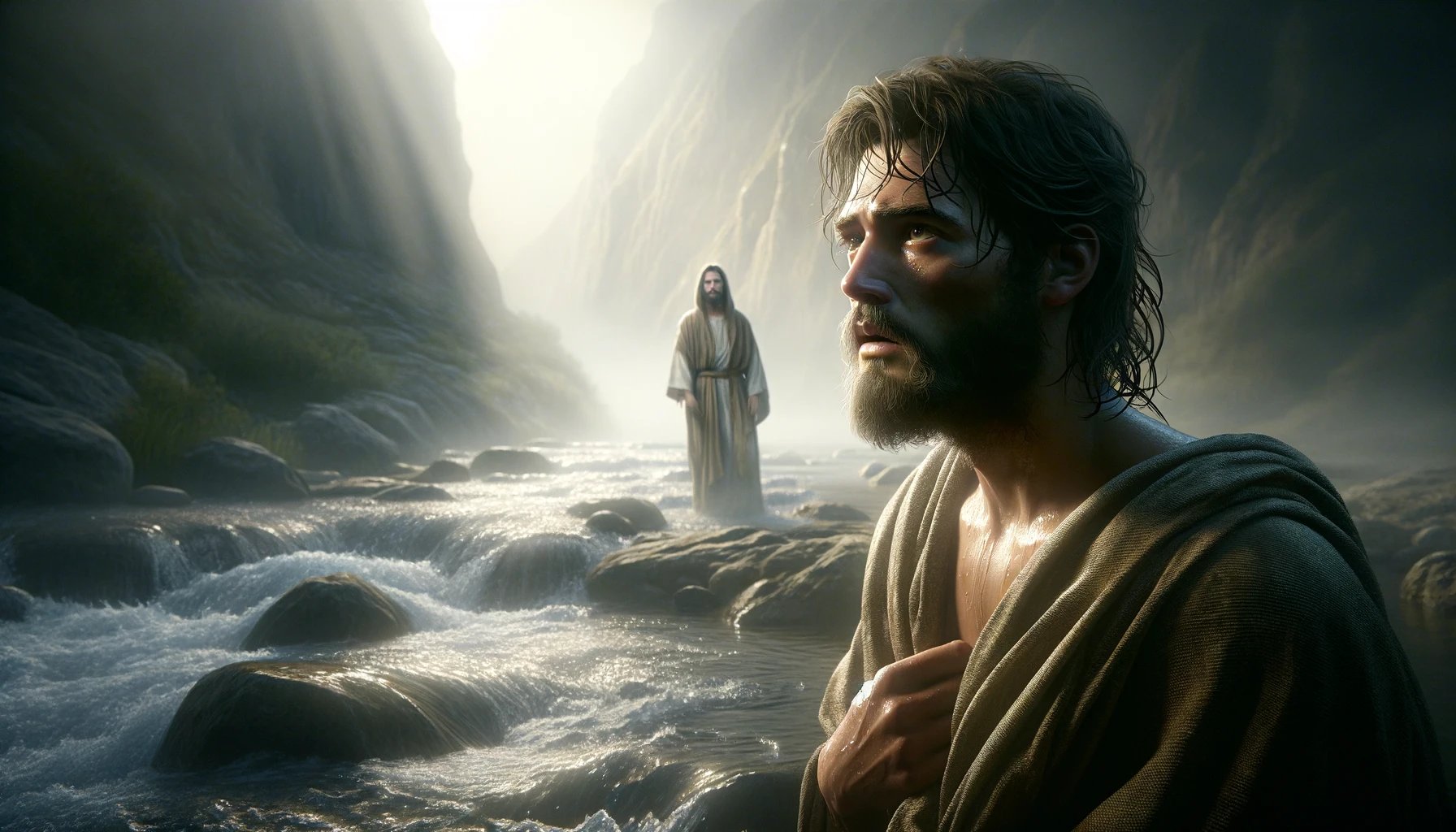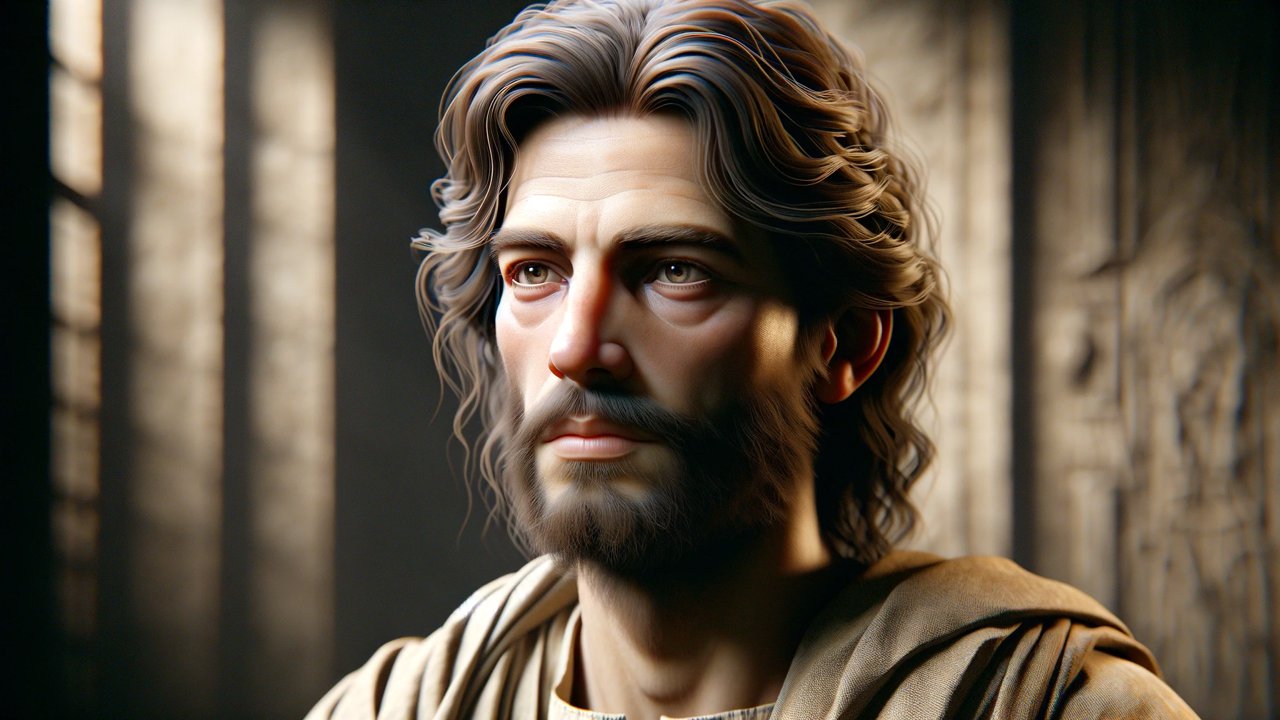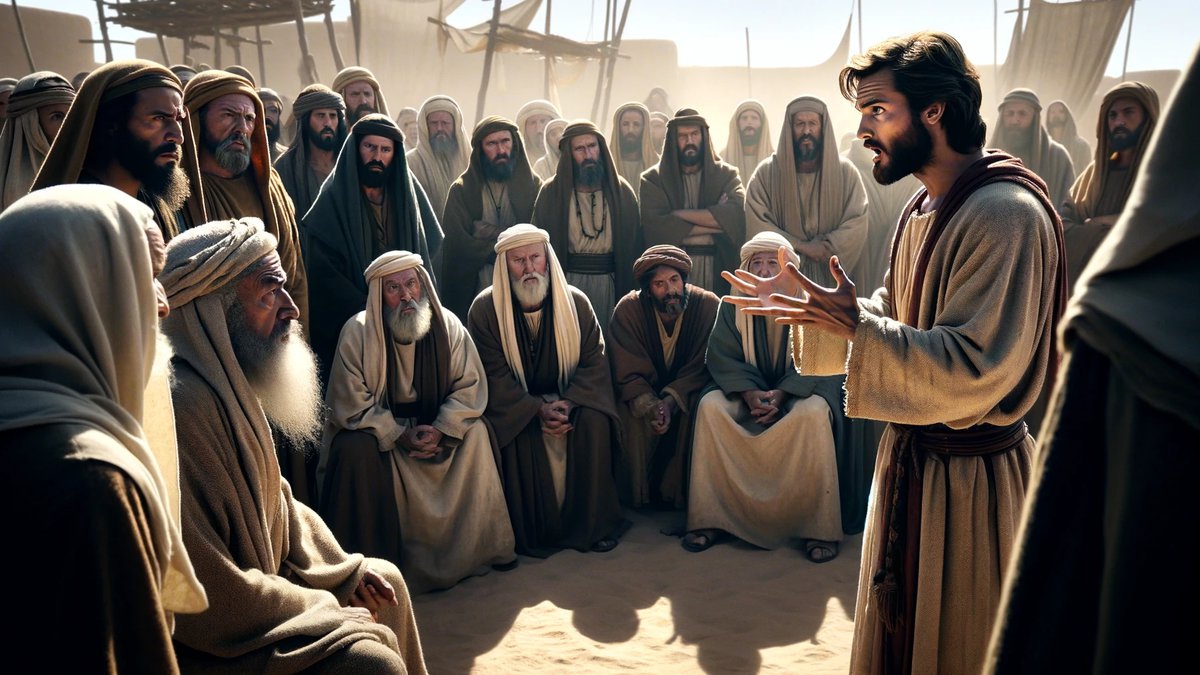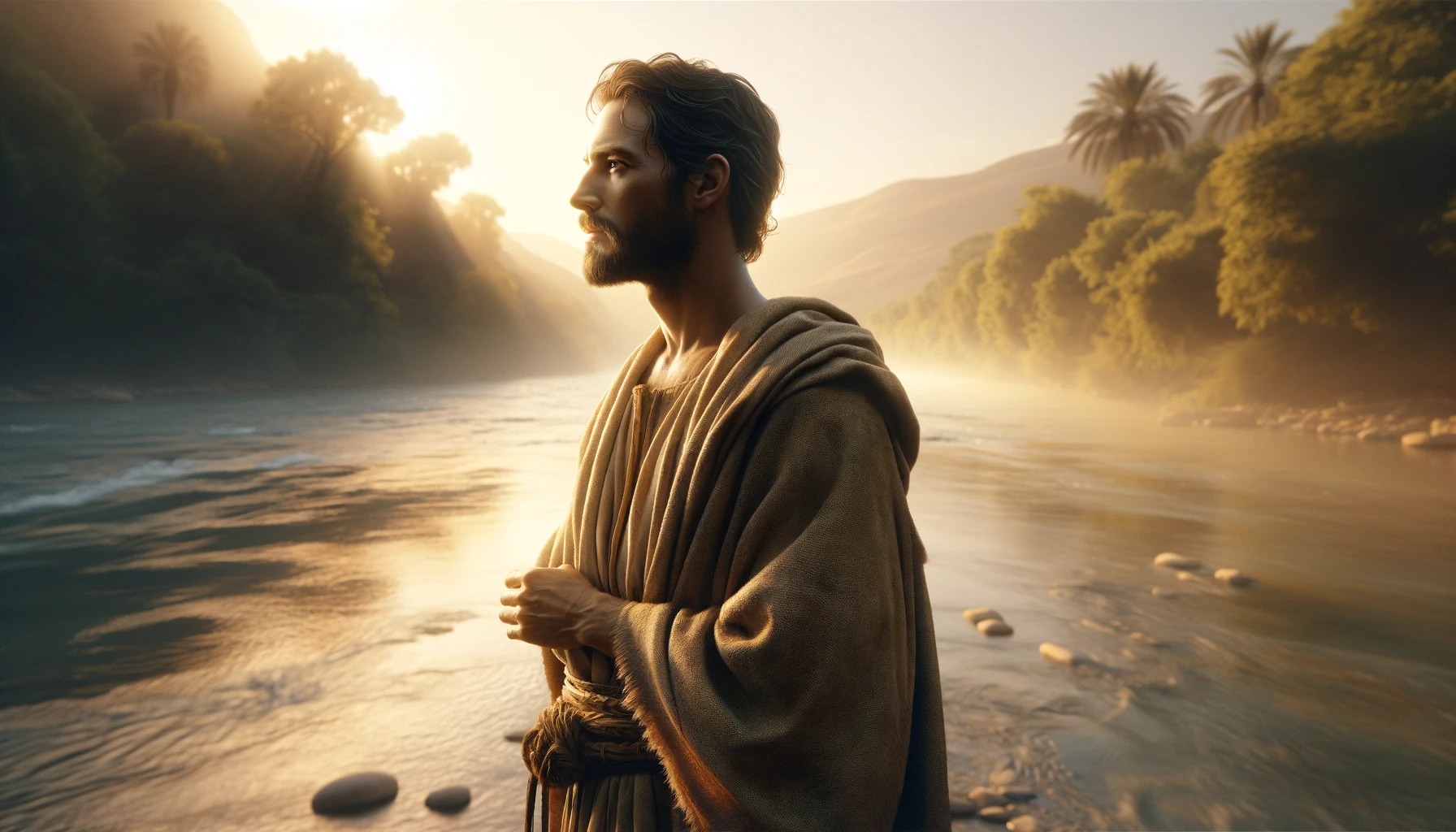Home>Christian Videos>Bible Stories>John The Baptist: What Did He Do
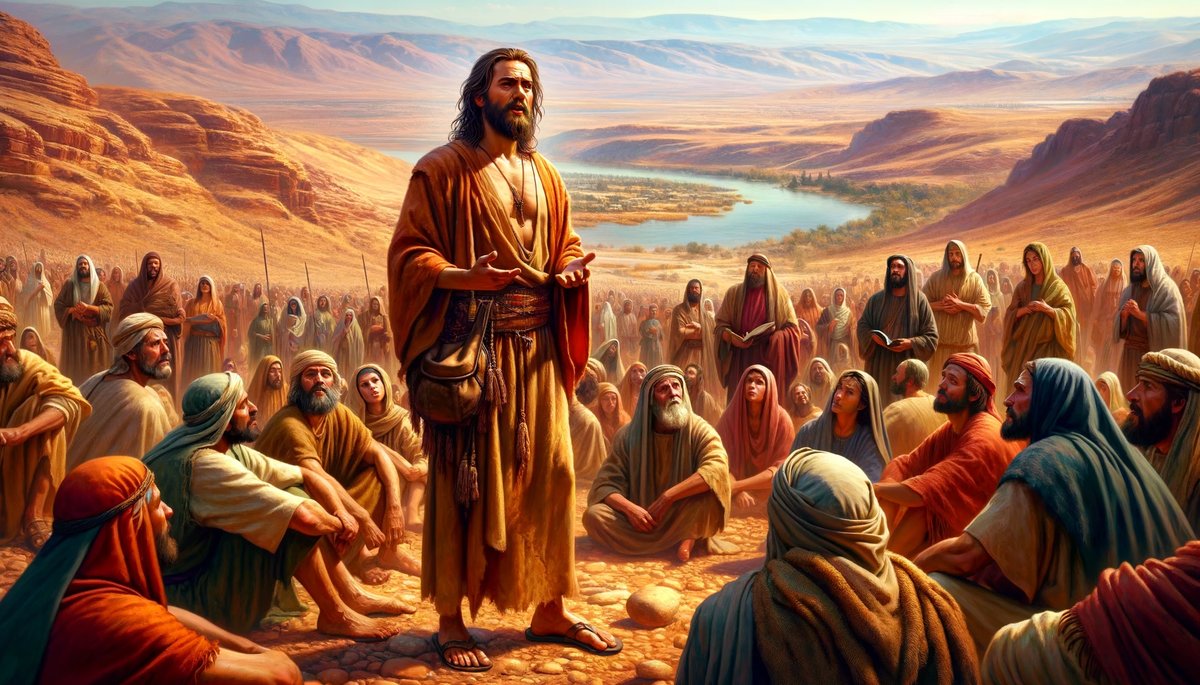

Bible Stories
John The Baptist: What Did He Do
Published: March 6, 2024
Jason DeRose, Managing Editor at Christian.net, uses his expertise in religion and journalism to deepen understanding of faith's societal impacts. His editorial leadership, coupled with a strong academic background, enriches the platform’s diverse content, earning him recognition in both journalism and religious circles.
Discover the impactful role of John the Baptist in the Bible and learn about his significant contributions to biblical history. Explore his story and influence in the context of biblical narratives.
(Many of the links in this article redirect to a specific reviewed product. Your purchase of these products through affiliate links helps to generate commission for Christian.net, at no extra cost. Learn more)
Table of Contents
Introduction
Who was John the Baptist, and what did he do? John the Baptist was a significant figure in the religious landscape of the time, and his impact is still felt today. His life and ministry were closely intertwined with the emergence of Jesus Christ and the early Christian movement. In this article, we will explore the life and work of John the Baptist, shedding light on his role as a religious leader and his influence on the development of Christianity. Join us on this journey as we delve into the fascinating story of John the Baptist and uncover the profound impact he had on the religious landscape of his time.
Read more: John The Baptist What Did He Do
The Birth and Early Life of John the Baptist
-
Miraculous Birth: John the Baptist's story begins with his miraculous birth to elderly parents, Zechariah and Elizabeth. The couple had been unable to conceive a child for many years, but an angel appeared to Zechariah, announcing that Elizabeth would bear a son. This miraculous conception was a sign of God's intervention and the special role that John would play in the unfolding of divine plans.
-
Nazirite Vow: John was set apart from birth, as his parents were instructed by the angel that he should be dedicated as a Nazirite. This meant that John was to abstain from wine and strong drink, avoid contact with the dead, and allow his hair to grow long as a symbol of his consecration to God. This vow set the stage for John's unique and ascetic lifestyle, which would later define his ministry in the wilderness.
-
Preparation for Ministry: As John grew, he lived in the wilderness, preparing himself for the ministry that lay ahead. His upbringing in the desert shaped his character and spirituality, fostering a deep connection with the natural world and a profound sense of devotion to God. This period of solitude and reflection laid the foundation for the powerful message he would later proclaim to the people of Judea.
-
Prophetic Calling: John's early life was marked by a sense of destiny and purpose. He was keenly aware of his calling as a prophet, and his unwavering commitment to this vocation set him apart as a figure of great significance in the religious landscape of the time. His upbringing and sense of divine mission would propel him into a pivotal role as a herald of the coming Messiah.
-
Influence of Elijah: The parallels between John the Baptist and the prophet Elijah are striking. John's attire and lifestyle mirrored that of the ancient prophet, and his message echoed the themes of repentance and preparation for the arrival of God's kingdom, much like Elijah's proclamation in his time. This connection to the prophetic tradition of Israel further underscored John's significance as a pivotal figure in the unfolding of God's redemptive plan.
John the Baptist's birth and early life set the stage for the remarkable ministry that would follow, laying the groundwork for his pivotal role as a herald of the Messiah and a transformative figure in the religious landscape of the time.
John's Ministry in the Wilderness
-
Ascetic Lifestyle: John the Baptist's ministry unfolded in the stark and rugged wilderness of Judea, where he lived a life of extreme simplicity and self-denial. His choice to dwell in the wilderness was a deliberate rejection of the trappings of urban life, symbolizing a return to the purity and authenticity of the prophetic tradition. This austere environment became the backdrop for his powerful message of repentance and spiritual renewal.
-
Proclamation of Repentance: In the wilderness, John fervently preached a message of repentance, calling upon the people to turn away from their sinful ways and prepare their hearts for the coming of the Messiah. His impassioned exhortations resonated with sincerity and urgency, compelling his listeners to confront their moral failings and seek reconciliation with God. The wilderness setting served as a powerful metaphor for the spiritual journey of transformation that John invited the people to undertake.
-
Baptism of Repentance: Central to John's ministry was the ritual of baptism, through which he symbolically cleansed and purified those who responded to his message. The act of immersion in the waters of the Jordan River signified a profound commitment to spiritual renewal and a decisive break from the past. This ritual of baptism became a tangible expression of the inner transformation that John sought to inspire in the hearts of his followers.
-
Challenging Religious Authorities: John's ministry in the wilderness was not confined to the realm of personal piety; it also carried a strong social and political dimension. His uncompromising critique of the religious establishment and the moral laxity of the ruling elite stirred controversy and attracted both fervent supporters and vehement opponents. His fearless denunciation of hypocrisy and injustice reverberated throughout the land, challenging the status quo and calling for a radical reorientation of religious life.
-
Gathering of Disciples: Despite the harsh and isolated nature of the wilderness, John's compelling message drew crowds of people from all walks of life. His charisma and moral authority captivated the hearts of many, leading to the formation of a devoted community of disciples who embraced his vision of spiritual renewal and eagerly awaited the fulfillment of his prophetic proclamation.
John the Baptist's ministry in the wilderness was a testament to his unwavering commitment to the call of God, his fearless proclamation of truth, and his profound impact on the hearts and minds of those who sought spiritual awakening and transformation.
John's Preaching and Baptism
John the Baptist's preaching and baptism were central to his ministry, embodying the essence of his message of repentance and spiritual renewal. His compelling proclamation resonated with sincerity and urgency, compelling his listeners to confront their moral failings and seek reconciliation with God. The act of baptism, symbolizing a profound commitment to spiritual renewal and a decisive break from the past, became a tangible expression of the inner transformation that John sought to inspire in the hearts of his followers. The ritual of baptism, conducted in the waters of the Jordan River, held deep symbolic significance, representing a cleansing of the soul and a readiness to embrace a new way of life.
As John fervently preached a message of repentance, he called upon the people to turn away from their sinful ways and prepare their hearts for the coming of the Messiah. His impassioned exhortations were not mere words; they carried the weight of a prophet's conviction and the urgency of a world in need of redemption. The wilderness setting served as a powerful metaphor for the spiritual journey of transformation that John invited the people to undertake, emphasizing the need to strip away the distractions of the world and focus on the inner renewal of the soul.
The act of baptism, central to John's ministry, was a profound and transformative experience for those who participated. Through the symbolic immersion in the waters of the Jordan River, individuals publicly declared their commitment to a life of repentance and spiritual awakening. This act of purification was not merely a ritualistic tradition but a deeply meaningful expression of one's desire to be cleansed of past transgressions and to embrace a new way of living in alignment with God's will.
John's preaching and baptism were not confined to the realm of personal piety; they carried a broader social and political dimension. His uncompromising critique of the religious establishment and the moral laxity of the ruling elite stirred controversy and attracted both fervent supporters and vehement opponents. His fearless denunciation of hypocrisy and injustice reverberated throughout the land, challenging the status quo and calling for a radical reorientation of religious life. The impact of his message and the transformative power of baptism reverberated far beyond the banks of the Jordan River, igniting a spiritual awakening and a fervent longing for reconciliation with God.
In essence, John's preaching and baptism were inseparable components of his ministry, embodying the call to repentance, the promise of spiritual renewal, and the invitation to embrace a transformed way of life. The echoes of his message and the ripples of his baptisms would resonate through the ages, shaping the course of religious history and leaving an indelible mark on the hearts of all who sought the path to redemption.
John's Role in the Life of Jesus
-
Baptism of Jesus: One of the pivotal moments in the relationship between John the Baptist and Jesus was the baptism of Jesus in the Jordan River. John, recognizing the divine nature of Jesus, initially hesitated to baptize him, feeling unworthy to perform such an act. However, Jesus insisted, and as he emerged from the waters, the heavens opened, and the Spirit descended like a dove, while a voice from heaven proclaimed, "This is my beloved Son, in whom I am well pleased." This event marked the public affirmation of Jesus' divine identity and the beginning of his earthly ministry.
-
Recognition of the Messiah: John the Baptist played a crucial role in preparing the way for the ministry of Jesus. His preaching and proclamation of repentance created an atmosphere of spiritual expectancy, leading many to question whether John himself might be the long-awaited Messiah. However, John consistently redirected the focus onto Jesus, declaring, "I baptize with water, but among you stands one you do not know, even he who comes after me, the strap of whose sandal I am not worthy to untie." This humble acknowledgment of Jesus' superiority and divine mission underscored John's pivotal role in pointing others toward the true Messiah.
-
Testimony and Witness: John the Baptist bore witness to the identity and mission of Jesus, proclaiming him as the Lamb of God who takes away the sin of the world. His unwavering testimony to the transcendent nature of Jesus' ministry and the redemptive significance of his mission served to validate and authenticate the divine purpose that Jesus came to fulfill. John's steadfast commitment to bearing witness to the truth of Jesus' identity established a foundation of credibility and trust that would resonate with those who encountered the message of the gospel.
-
Preparation and Fulfillment: The ministry of John the Baptist served as a bridge between the prophetic anticipation of the Messiah and the fulfillment of that expectation in the person of Jesus. His call to repentance and his baptismal ritual prepared the hearts of the people for the imminent arrival of the Messiah, creating a sense of spiritual readiness and receptivity to the transformative message that Jesus would bring. In this way, John's role in the life of Jesus was not only preparatory but also integrally linked to the fulfillment of God's redemptive plan for humanity.
-
Suffering and Imprisonment: The connection between John the Baptist and Jesus extended to the realm of suffering and persecution. John's uncompromising stance against the moral transgressions of King Herod Antipas led to his imprisonment and eventual execution. This tragic fate mirrored the suffering and sacrificial nature of Jesus' own mission, creating a poignant parallel between the two figures and underscoring the depth of their shared commitment to the cause of truth and righteousness.
John the Baptist's role in the life of Jesus was multifaceted, encompassing elements of preparation, testimony, and sacrificial witness. His profound impact on the unfolding narrative of Jesus' ministry and the establishment of the Christian faith solidified his legacy as a central figure in the religious landscape of the time.
Imprisonment and Death of John the Baptist
-
Conflict with Herod: John the Baptist's unwavering commitment to truth and righteousness brought him into direct conflict with Herod Antipas, the ruler of Galilee and Perea. Herod's marriage to Herodias, his brother's wife, was a flagrant violation of Jewish law, and John fearlessly condemned this union, denouncing Herod's moral transgression and calling for repentance. Herod, though initially intrigued by John's message, eventually succumbed to pressure from Herodias, leading to John's imprisonment.
-
Imprisonment in Machaerus: Herod imprisoned John in the fortress of Machaerus, a formidable stronghold overlooking the Dead Sea. Despite the harsh conditions and the isolation of his confinement, John remained resolute in his convictions, unwavering in his commitment to the truth. His imprisonment, far from silencing his voice, only served to amplify the impact of his message, as his steadfast witness continued to resonate with those who heard of his plight.
-
The Dance of Salome: The circumstances surrounding John's death were shaped by a fateful event at Herod's birthday celebration. Herodias's daughter, Salome, captivated Herod with her dance, prompting him to make a rash vow to grant her any request. Influenced by her mother, Salome demanded the head of John the Baptist on a platter, exploiting Herod's impulsive pledge. Despite his reluctance, Herod felt bound by his oath and ordered the execution of John.
-
Martyrdom and Legacy: John the Baptist's martyrdom was a testament to his unwavering commitment to truth and righteousness, even in the face of persecution and death. His sacrificial witness and steadfast devotion to his prophetic calling left an indelible mark on the collective memory of the early Christian community. The news of his death reverberated throughout the region, stirring deep emotions and solidifying his legacy as a figure of profound moral courage and spiritual integrity.
-
Spiritual Significance: The martyrdom of John the Baptist held deep spiritual significance within the Christian tradition, symbolizing the triumph of righteousness over the forces of worldly power and corruption. His steadfast witness in the face of persecution served as a powerful example of moral courage and unwavering faith, inspiring generations of believers to stand firm in their convictions and remain faithful to the call of God, even in the most challenging circumstances.
The imprisonment and death of John the Baptist stand as a poignant testament to the cost of unwavering commitment to truth and righteousness, and the enduring legacy of his martyrdom continues to inspire and challenge individuals to uphold the highest ideals of moral courage and spiritual integrity.
Legacy of John the Baptist
-
Profound Influence: John the Baptist's legacy extends far beyond the boundaries of his earthly life. His uncompromising commitment to truth and righteousness, his fearless proclamation of repentance, and his sacrificial witness in the face of persecution left an indelible mark on the religious landscape of his time and beyond. The impact of his ministry reverberated through the hearts and minds of those who encountered his message, shaping the course of religious history and inspiring generations of believers to embrace a life of spiritual authenticity and moral courage.
-
Herald of the Messiah: John's pivotal role as the herald of the Messiah solidified his place in the annals of religious history. His unwavering testimony to the transcendent nature of Jesus' ministry and the redemptive significance of his mission served to validate and authenticate the divine purpose that Jesus came to fulfill. By preparing the hearts of the people for the imminent arrival of the Messiah, John's legacy became intertwined with the foundational narrative of the Christian faith, establishing him as a central figure in the unfolding of God's redemptive plan for humanity.
-
Exemplar of Moral Courage: John the Baptist's martyrdom stands as a testament to the cost of unwavering commitment to truth and righteousness. His sacrificial witness and steadfast devotion to his prophetic calling left an enduring legacy of moral courage and spiritual integrity. His unwavering stance against the moral transgressions of the ruling elite, even in the face of persecution and death, continues to inspire individuals to stand firm in their convictions and remain faithful to the call of God, even in the most challenging circumstances.
-
Continued Inspiration: The enduring legacy of John the Baptist continues to inspire and challenge individuals to uphold the highest ideals of moral courage and spiritual authenticity. His life and ministry serve as a timeless example of unwavering commitment to the pursuit of truth and righteousness, offering a compelling model for those who seek to live lives of purpose, integrity, and devotion to the divine call.
-
Spiritual Significance: Within the Christian tradition, the legacy of John the Baptist holds deep spiritual significance, symbolizing the triumph of righteousness over the forces of worldly power and corruption. His steadfast witness in the face of persecution serves as a powerful example of moral courage and unwavering faith, inspiring believers to emulate his unwavering commitment to truth and righteousness.
John the Baptist's legacy endures as a testament to the transformative power of a life lived in alignment with the divine call, inspiring individuals to embrace the highest ideals of moral courage, spiritual authenticity, and unwavering devotion to the pursuit of truth and righteousness.
